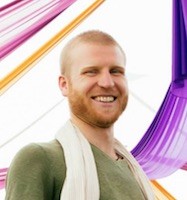Everybody knows pro football is strictly macho.
Coaches screaming and swearing. Players brutalizing each other for sport. Merciless fans and commentators allowing no room for human error.
That’s just how it is.
Those tough guy tactics are what makes the game so intense, and what drives the players to perform as close to perfection as they do.
Collateral damage like life-long brain trauma, rampant PED use, symptoms of depression and PTSD amongst current and former players are, however regrettable, simply unavoidable side-effects of the game so many of us love.
Right?
A story in the most recent issue of ESPN The Magazine describes how one NFL franchise abides by an alternative approach.
The Seattle Seahawks have embraced the principles of mindful living throughout the organization. Led by head coach Pete Carroll and starting quarterback Russell Wilson, their holistic approach to achieving peak performance could be a blueprint for the league moving forward.
Carroll says, “I wanted to find out if we went to the NFL and really took care of guys, really cared about each and every individual, what would happen?”
Radical. The article goes to explain,
“The big idea is that happy players make for better players. Everyone in the facility, from coaches and players to personal assistants and valets, is expected to follow Carroll’s mantras regarding positivity of thought, words and actions.”
What a concept! The fresh approach includes assistant head coach Tom Cable, the former hothead coach of the Raiders.
“I always coached how my coaches coached me,” he says.
Working alongside Carroll, 48-year-old Cable says he finally feels as though he’s working with players the right way.
“If I go ballistic on a guy because he dropped his outside hand or missed an underneath stunt, who is wrong? I am,” Cable says. “I’m attacking his self-confidence and he’s learning that if he screws up, he’s going to get yelled at. If you make a mistake here, it’s going to get fixed.”
Wow. Now compare that to the attitudes expressed by the coaches in the video at the top, and tell me: who would you rather play for?
And it’s not just the coaches. The organization as a whole is supporting this movement to humanize the NFL atmosphere. For example,
“Team chef Mac McNabb feeds the players fruits and vegetables from local organic farms. He takes any leftovers to a nearby family-run farm to feed free-range chickens, which are raised specifically for the Seahawks cafeteria.”
Local? Organic? Free-range? I didn’t know these terms were in the NFL lexicon.
Speaking of word-choice, players and coaches follow a strict guideline to end every interview with a “Thank you” to the reporter. In addition, when choosing players in the draft:
“Carroll, Schneider and the scouting department look at the same physical traits every other team evaluates, but they might value interview sessions more than any other team in the league.
They pay close attention to a potential draft pick’s word choices and any negative language or finger-pointing. They want to hear accountability and optimism.”
In a league rife with metaphors of war, with stakes made to seem to be life or death, here is a group of people frowning on foul language, insisting on positive mental attitudes, demanding “accountability and optimism.” We should all be so lucky to have a coach or boss with these priorities.
Obviously, pro football is still a wildly violent sport, but it nonetheless requires a great deal of grace and determination to be successful. Those are traits to which we can all aspire, regardless of the arena in which we compete for a living.
As America’s most popular professional sport, the NFL in many ways reflects our collective attitudes. Too often we allow brutality, physical and otherwise, to go unopposed because “that’s the way it is.” Life is tough, y’know?
Here, the Seahawks are providing an outstanding example that, even in the roughest of situations, there is plenty of room for graciousness, for calm amidst the storm, for mindfulness.
This one last quotation, from left tackle Russell Okung, absolutely blows me away. not because it’s anything I didn’t already believe, but it is the source—an active NFL player one year younger than myself—that sends chills up and down my spine.
It instills a sense of pride, and reaffirms my hope that this millenial generation has the capacity to inspire some fundamental changes in the way we all work, play and treat each other.
“Meditation is as important as lifting weights and being out here on the field for practice,” Okung says. “It’s about quieting your mind and getting into certain states where everything outside of you doesn’t matter in that moment. There are so many things telling you that you can’t do something, but you take those thoughts captive, take power over them and change them.”
Go Seahawks!
Although, to be fair, it is not just the Seahawks who have seen the Light on Yoga. Observe:
And then of course, there is Ricky Williams, a yogi trained in the Sivananda tradition:
For more in-depth about the remarkable life and career arc of Ricky Williams, I highly recommend the ESPN 30 for 30 documentary “Run Ricky Run” (available for instant streaming on Netflix).
This article adapted from the original story which can be found here.
Like elephant yoga on Facebook.
Ed: Catherine Monkman


Read 0 comments and reply